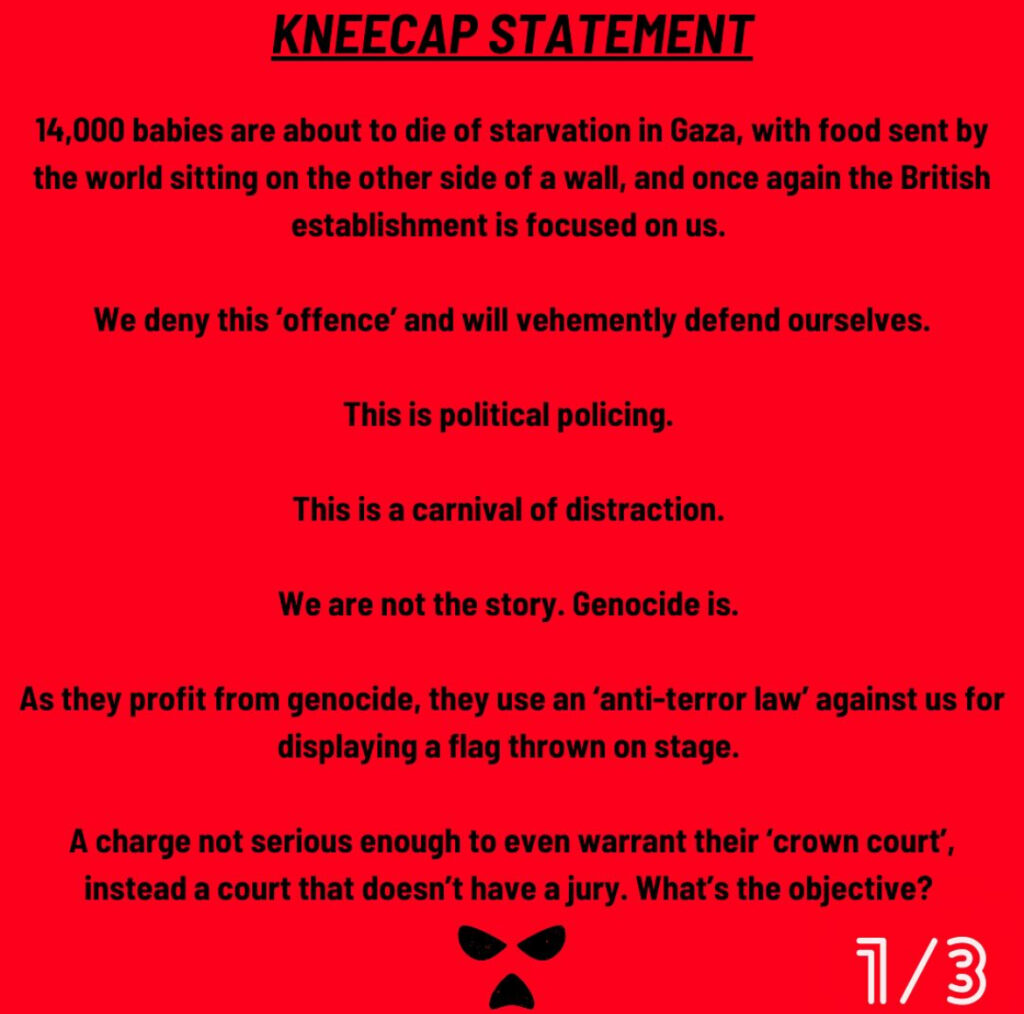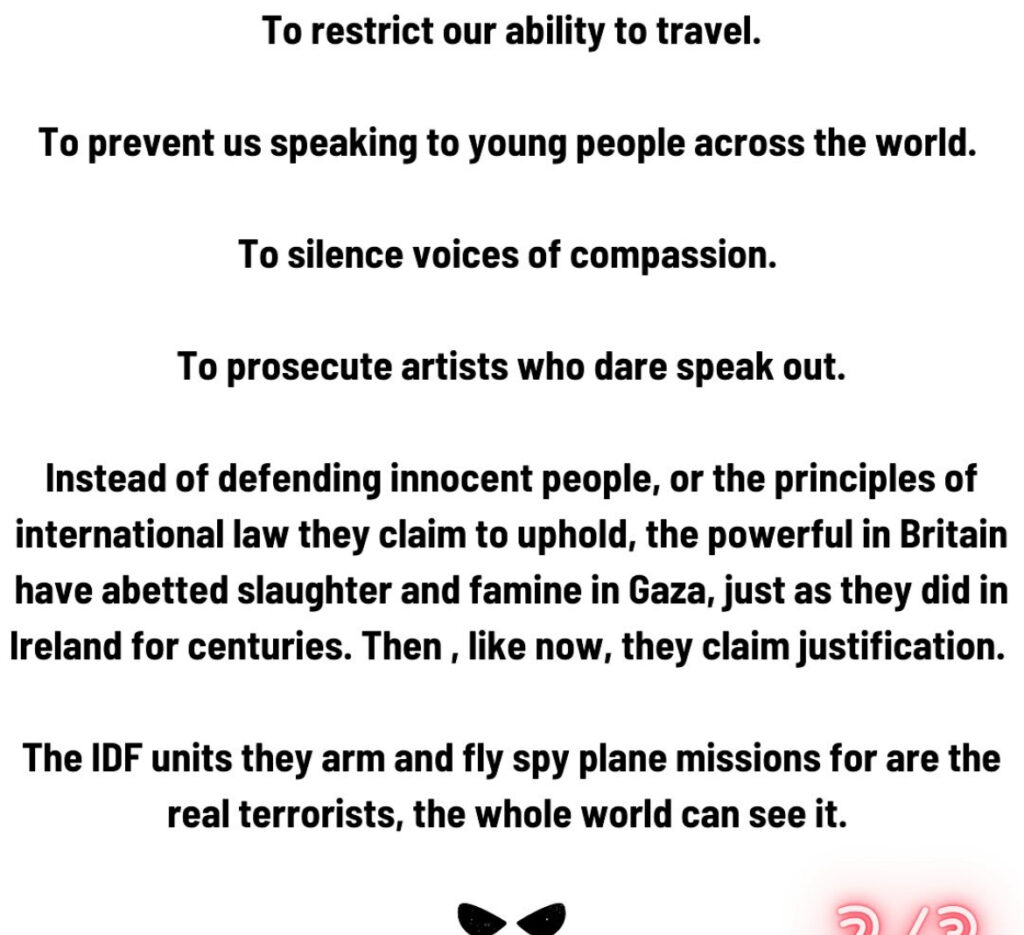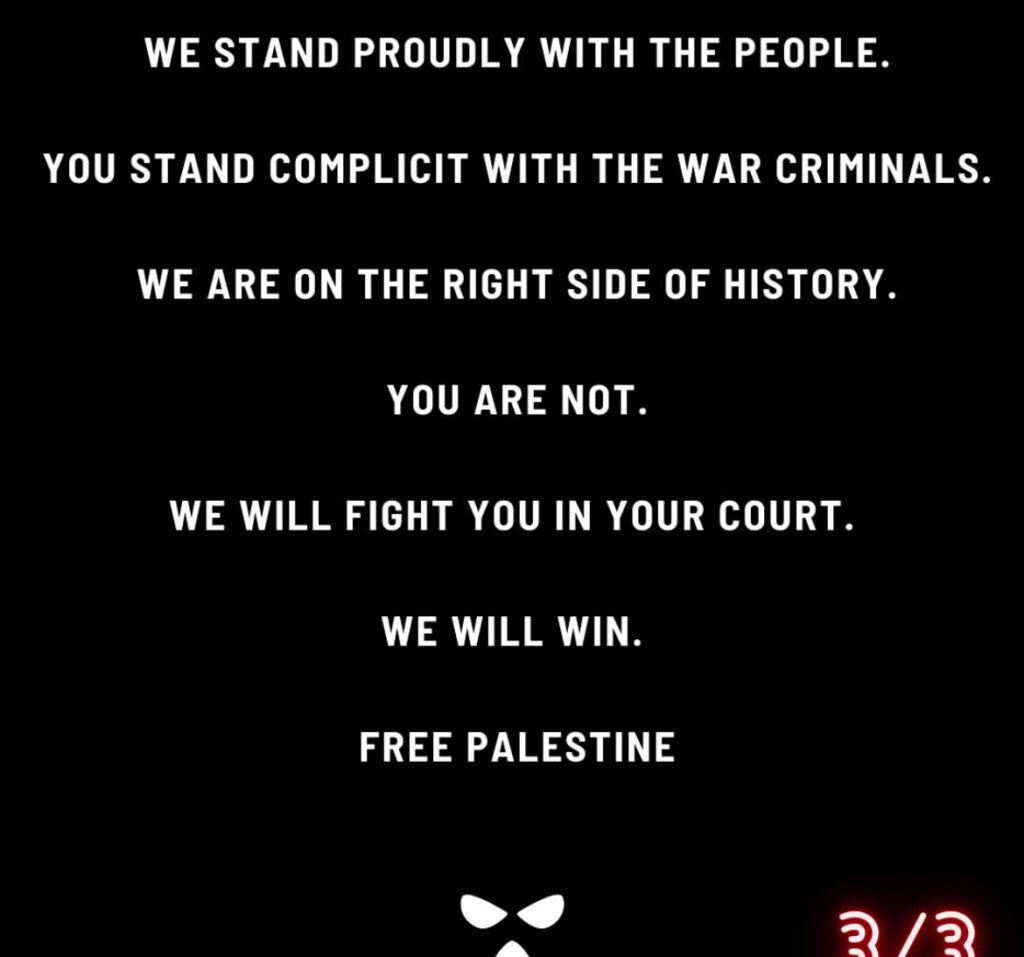SELECTIVE OUTRAGE: WHY THE MEDIA FIXATES ON A RAPPER INSTEAD OF THOUSANDS OF DEATHS

Kneecap (Rachel Brown/Northern Exposure)
Kneecap member Liam Óg Ó Hannaidh charged with terror offence following London gig but why is all the focus here, and not on Gaza?
Liam Óg Ó Hannaidh, a member of the Irish-language rap group Kneecap, has been formally charged with a terror offence in relation to an incident at a gig in London on 21 November 2024. The charge concerns displaying a flag in support of Hezbollah, prompting an investigation by the Metropolitan Police’s Counter Terrorism Command.
Ó Hannaidh, who is from Belfast, was charged via postal requisition and is expected to appear in Westminster Magistrates’ Court on 18 June. Footage from the performance surfaced online in April, leading to renewed scrutiny over the group’s politically charged content and the broader implications of artistic expression in modern-day policing.
However, some very important questions need to be asked, to start why is much of the media using Ó Hannaidh’s English name rather than his Irish name, despite his clear preference? Kneecap has long been vocal about Irish identity and language, yet mainstream reporting seems to default to an English version, raising concerns about editorial bias and cultural erasure. Is this a conscious decision or simply an oversight? Either way, it speaks to a wider issue of representation and respect for identity in journalism.
But beyond this, another, even more urgent question arises, why is all the attention on Kneecap, rather than the thousands of people dying in Gaza? Since October 2023, over 53,655 Palestinians have been killed, with more than 121,950 injured. Hospitals are collapsing, children are dying from starvation, and emergency services are unable to reach many casualties.
Yet, while headlines swarm around individual controversies, the humanitarian crisis in Gaza continues with limited global intervention and fading media coverage. The world seems more eager to debate artistic expression than the mass suffering of an entire population. What does that say about our priorities? Our empathy?
Kneecap has gained a reputation for pushing boundaries with its unapologetic lyricism and outspoken political themes. This latest charge adds another layer to ongoing discussions about free speech, cultural identity, and how governments respond to artistic activism. But as attention fixates yet again on this case, we must ask, where is the same level of scrutiny, urgency, and outrage for Gaza?







